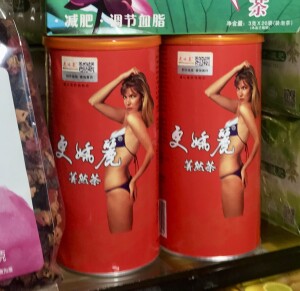When you wander through the winding alleys of Beijing’s Sanyuanli Wet Market, you expect fresh produce, the scent of spices, and a glimpse into everyday Chinese shopping culture. What you don’t always expect is to stumble across something that makes you laugh out loud. That’s exactly what happened when I spotted these brightly labeled cans stacked neatly on a vendor’s shelf. The bold English words jumped right out at me: “Nice Cans!” Of course, the joke writes itself. But despite the giggles, these aren’t just novelty items—they’re actually cans of diet tea, marketed to help people lose weight while enjoying a refreshing drink.
This is one of the quirky things about living abroad and exploring local markets. Packaging often carries unexpected surprises when translated into English. Sometimes it’s a genuine attempt at Western appeal; other times it’s a playful coincidence. In this case, it’s hard not to appreciate both the humor and the marketing creativity. It’s moments like this that remind you how interconnected the world has become—where a phrase meant to attract attention can resonate in unexpected and funny ways with international visitors.
Beyond the laugh, these “Nice Cans” also highlight the importance of tea in Chinese culture. From green tea to pu-erh, tea isn’t just a beverage here—it’s tradition, wellness, and social connection all rolled into one. Diet teas in particular have grown in popularity as modern consumers balance traditional practices with contemporary health trends. At Sanyuanli, vendors are quick to explain the supposed benefits, often tying them back to centuries-old herbal remedies. Whether or not they actually work as advertised, the marketing alone is worth the price of admission.
That’s part of the magic of exploring wet markets like Sanyuanli. They’re more than shopping destinations; they’re cultural snapshots. You’ll see locals bargaining over vegetables, discover regional specialties you won’t find in supermarkets, and occasionally come across an accidental English pun that makes your day. It’s the blend of serious tradition and unintentional comedy that keeps these markets endlessly fascinating.

